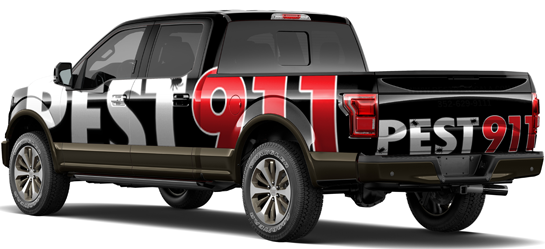Where Do Aphids Come from & Why Do They Live Outdoors of Your Ocklawaha FL House?
Aphids are notoriously known for the mayhem they cause plants and shrubs. With their insidious ways, they run amuck, and left unchecked, they can destroy precious vegetation in your landscape. Aphids are tiny, soft bodied, that are often green, but may be red, black or brown in color. They are insects equipped with two bitty tubes at the end of their abdomens that are called cornicles. Having small eye and sucking mouth parts, and fairly long antennae, these tiny insects are distinct and move slowly without hopping or jumping. Considering the little issues these little villains can do, we at Pest 911 would like to take the opportunity to expound on aphids.
Where Do Aphids Come from & Live?
With thousands of species of aphids found throughout the world, Florida is bound to have its fair share. With their ability to be carried long distance with the use of the adult aphid’s winds and being incredibly small they float in the wind. These little critters are able to get around! Aphids will often hide in the curls of leaves and are more often than found on or near their food source or preferred plant. Any vegetation is fair game for aphids.
Aphid Reproduction & Life Cycle
Young aphids look much like adults, but don’t have wings. Aphid populations grow fast despite their complicated life cycles; as an adult female can produce daughters without mating, and their daughters can do the same. Some produce sons and daughters that have wings as the season progresses, and they may fly to new or different food plants.
What Do Aphids Eat
Since aphids are herbivores; they will suck the juices from plant including the roots, stem, and leaves. The compounds from the juices often carry more sugar than protein and because they over compensate for their meals to get the protein they need, they excrete a lot of sugar. The excreted sugary fluid is known as honeydew and many other insect consume it.
Aphid Predators & Food Chain
When aphids detect a threat or a predator, they will hide in the curls of leaves among other places. To communicate to other aphids of the danger they will release a chemical which when the others smell it, they know danger is nearby. Many of them will attempt to fly or walk away, but their wings are so weak, it is more like floating. Known predators to the aphids include lady beetles, flower fly larvae, wasps, small spiders, ants, thrips, and mites. Despite being food for other insects, ants enjoy the honeydew they produce and some colonies will go out of their way to protect the aphids; even going to the extremes of placing them in their nests during the cold winter months and putting them on plants in the spring.
Aphid Pest Control
Aphids are one of the worst pests that inflict vegetation. Not only do they harm the plants they feed on but they will carry disease and transmit them from plant to plant. To protect the plants in your landscape, contact Pest 911. Our team of trained specialists will apply proven treatments that diminish insects but are safe on plants.


